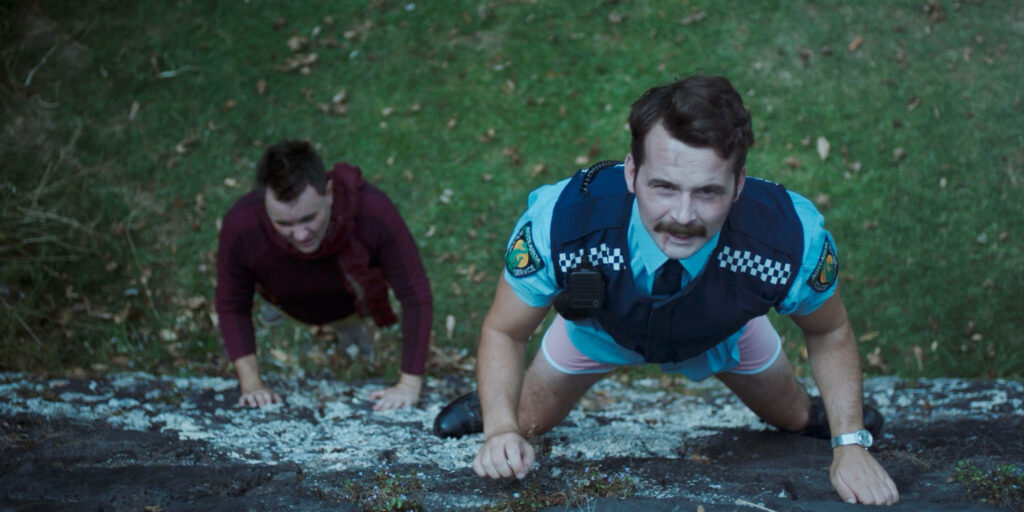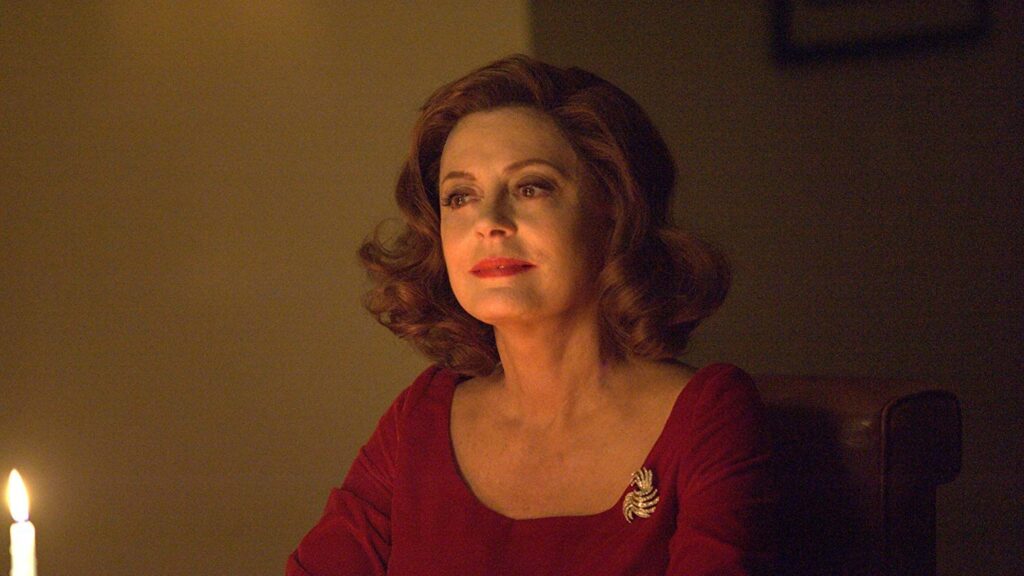Dead is a hilarious buddy cop comedy with a ton of heart
Written by Ian Thomas Malone, Posted in Blog, Movie Reviews, Pop Culture
The stoner comedy genre has taken a bit of a hit in the wake of marijuana’s broader mainstream acceptance. Gradually shedding its counter-cultural image, humor from such endeavors must rely less on shock value. The New Zealand-based comedy/horror film Dead puts forth a strong effort that subverts all genre expectations.
Dane “Marbles” Marbeck (Thomas Sainsbury) is a bit of a hapless stoner who concocts a potion made from pot and his late father’s neurological medication that allows him to see ghosts. One ghost, Tagg (Hayden J. Weal), a police officer who was recently murdered while pursuing a serial killer, presents Marbles with an opportunity to put his gifts to use. In exchange for helping him solve the case, Tagg offers Marbles his life insurance payout in order to buy his family farm from his mother (Jennifer Ward-Lealand).
Sainsbury and Weal, who also co-authored the screenplay, are quite compelling in the lead roles. There’s a depth to Marbles that elevates the character beyond the many stock personality types that can be found in the genre. He’s not just a sad dope, but a kind person with a sense of personal drive that’s easy to get behind. Also juggling director duties, Weal constantly challenges his audience with emotionally resonant material that’s quite funny without ever feeling like it’s playing for laughs.
A scene early on between Marbles and his father Ross (Michael Hurst) comes out of nowhere with its heartfelt sincerity, hardly the kind of approach common in a buddy cop stoner film. Weal packs quite a lot of character development in for Marbles and Tagg, giving their relationship a journey that feels unconstrained by the limits of a ninety-minute runtime. The pacing is superb.
Dead tackles LGBTQ issues quite well in an interesting dynamic. Sainsbury, openly gay, plays the straight Marbles while Weal, openly heterosexual, plays the openly gay Tagg. Tagg’s gayness is integral to the narrative, but the film takes an inclusive approach to its humor. It’s rather refreshing to watch a film where the LGBTQ community actually feels in on the jokes.
The New Zealand landscape is absolutely beautiful. Much of Dead is filmed outdoors, giving global audiences a chance to experience the country, particularly valuable in the midst of a pandemic. While clearly not a big budget endeavor, the strong production values and first-rate cast more than make the case for the film.
Dead is in Select Theaters and Virtual Cinemas on 9/25 and on Digital on 10/6














